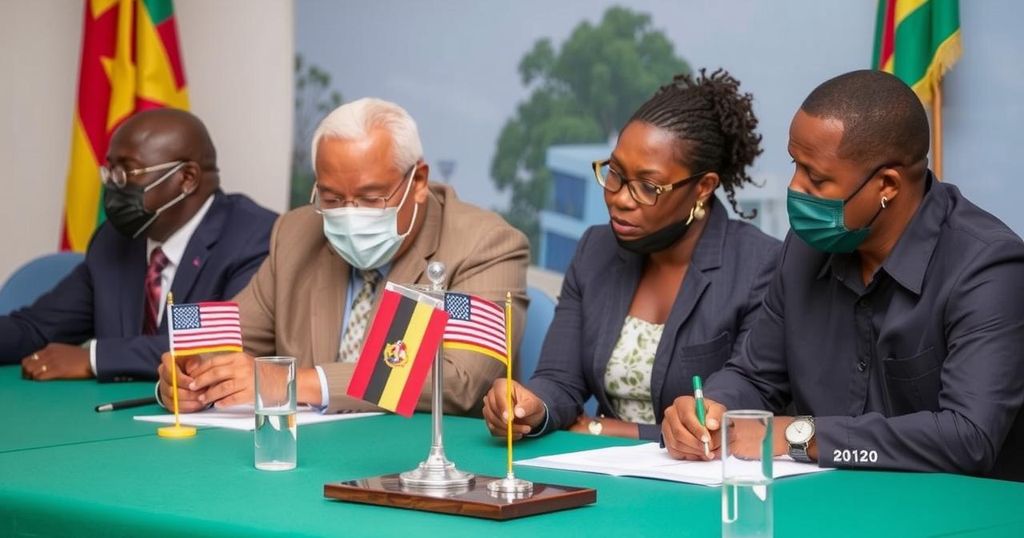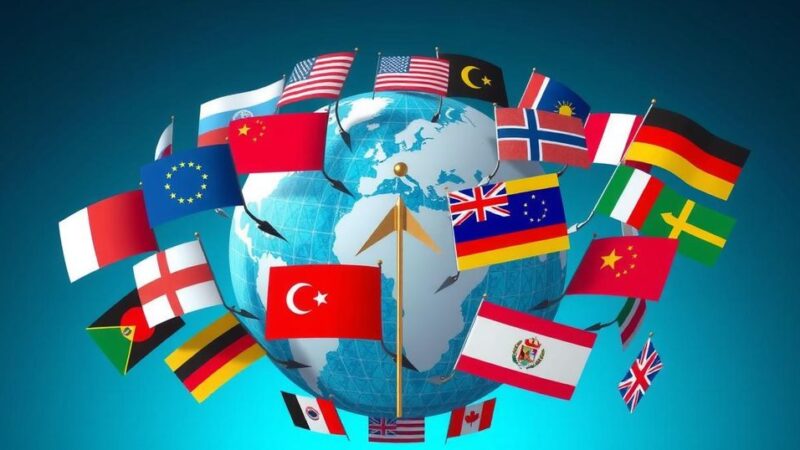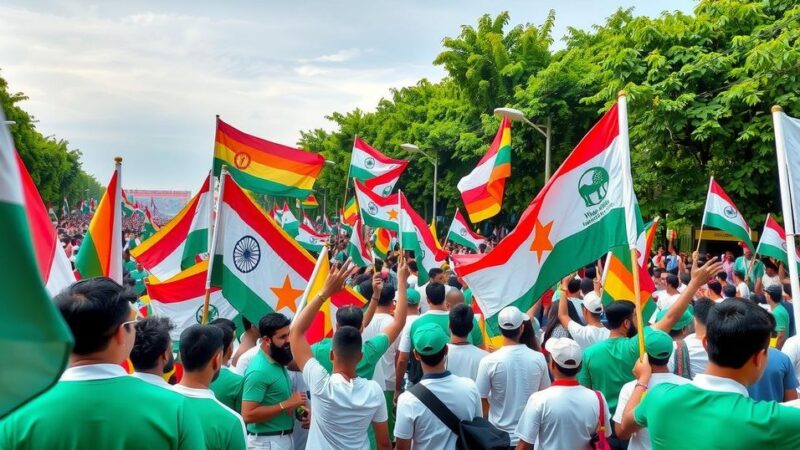Zimbabwe’s President Emmerson Mnangagwa announced SADC’s readiness to assist Mozambique amid post-election violence claiming over 100 lives. South Africa advocates for dialogue, while opposition leaders and human rights organizations condemn the government’s crackdown. Analysts stress the need for a resolution to restore normalcy and open vital trade routes. A path toward peace is increasingly sought by regional players and opposition forces.
Zimbabwean President Emmerson Mnangagwa, in his role as chairman of the Southern African Development Community (SADC), has affirmed the regional bloc’s readiness to aid Mozambique amid the unrest following the October 9 elections, which have resulted in over 100 fatalities, according to human rights organizations. The violence has erupted following accusations by the opposition that the electoral process was marred by fraud, with the ruling Frelimo party declared the victor by the Constitutional Council, which reported a 65% election win.
In light of the escalating crisis, South Africa’s Minister of International Relations, Ronald Lomola, emphasized the necessity for immediate dialogue to foster national healing and a renewed political approach. He stated, “South Africa calls on all parties to commit to an urgent dialogue that will heal the country and set it on a new political and developmental trajectory. Furthermore, South Africa is ready to assist Mozambique in any manner to facilitate this dialogue.”
Venancio Mondlane, the opposition presidential candidate, echoed the need for change, noting the suffering caused by the Frelimo-led violence. Khanyo Farise of Amnesty International condemned the government’s harsh crackdown, reporting excessive police violence, including lethal force against protesters, stating, “Since the outcome of the elections on Oct. 9, police have responded with excessive use of force against those who decide to express themselves and to exercise their right to freedom of association and assembly. We have seen police using live ammunition… Many people have been seriously wounded, and over 110 people have been killed.”
Researcher Borges Nhamirre underscored the critical importance of achieving peace to restore the functionality of Mozambique’s closed ports, which serve several neighboring nations. He remarked, “The fastest way to solve this problem is dialogue. There is no alternative to dialogue.” With increasing calls for peace from both regional organizations and domestic opposition, there is cautious optimism that Mozambique may embrace a path toward stability and resolution of current issues.
The unrest in Mozambique follows contested electoral results from the October 9 elections, where accusations of malpractice and electoral fraud by the ruling party, Frelimo, have led to significant civilian protests. The situation is exacerbated by violent crackdowns on demonstrators, creating a humanitarian crisis as the nation suffers from economic stagnation due to the disruption of essential services, such as port operations. The response from regional organizations like SADC reflects a collective concern for stability in the region, emphasizing the necessity for a peaceful resolution to the ongoing conflict in Mozambique.
In summary, the situation in Mozambique is deteriorating in the wake of disputed election results, prompting urgent calls for dialogue and intervention from regional powers. The alarming death toll from state violence against protesters underscores the necessity for immediate actions to restore peace and order. If discussions proceed effectively, there exists hope for a new trajectory for political and economic stability in Mozambique, benefiting not only its citizens but also neighboring countries reliant on its ports for trade.
Original Source: www.voanews.com






